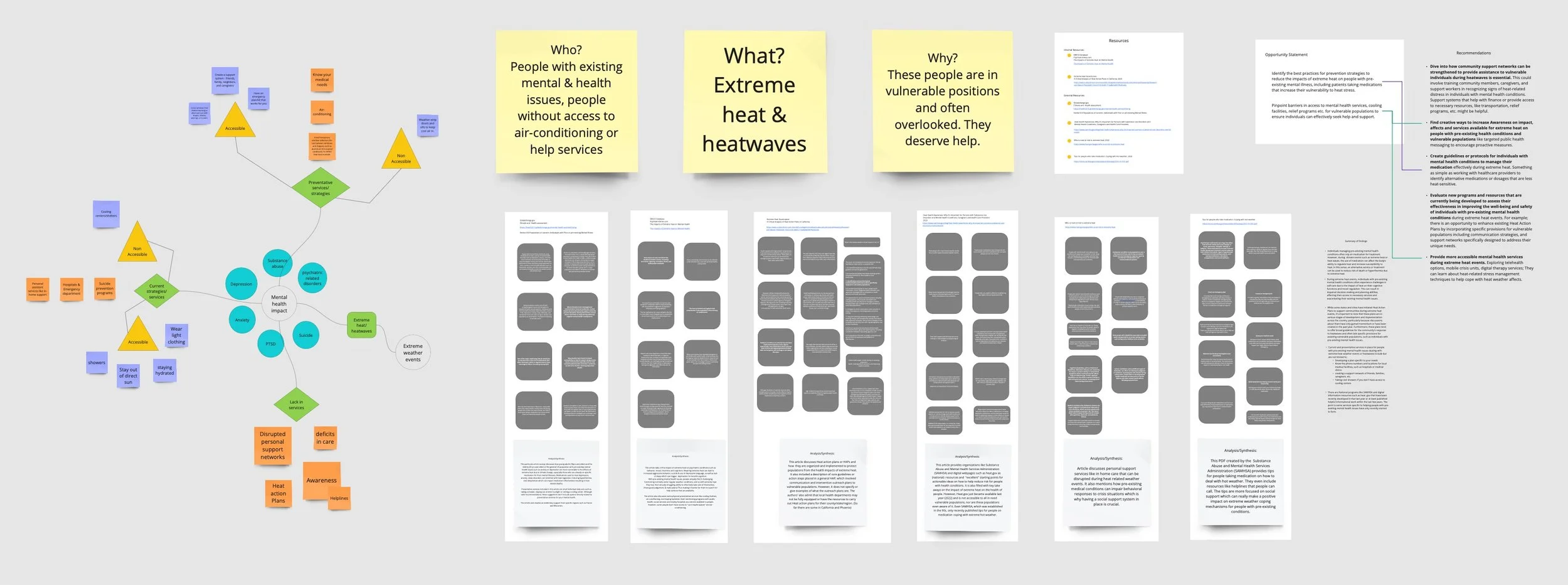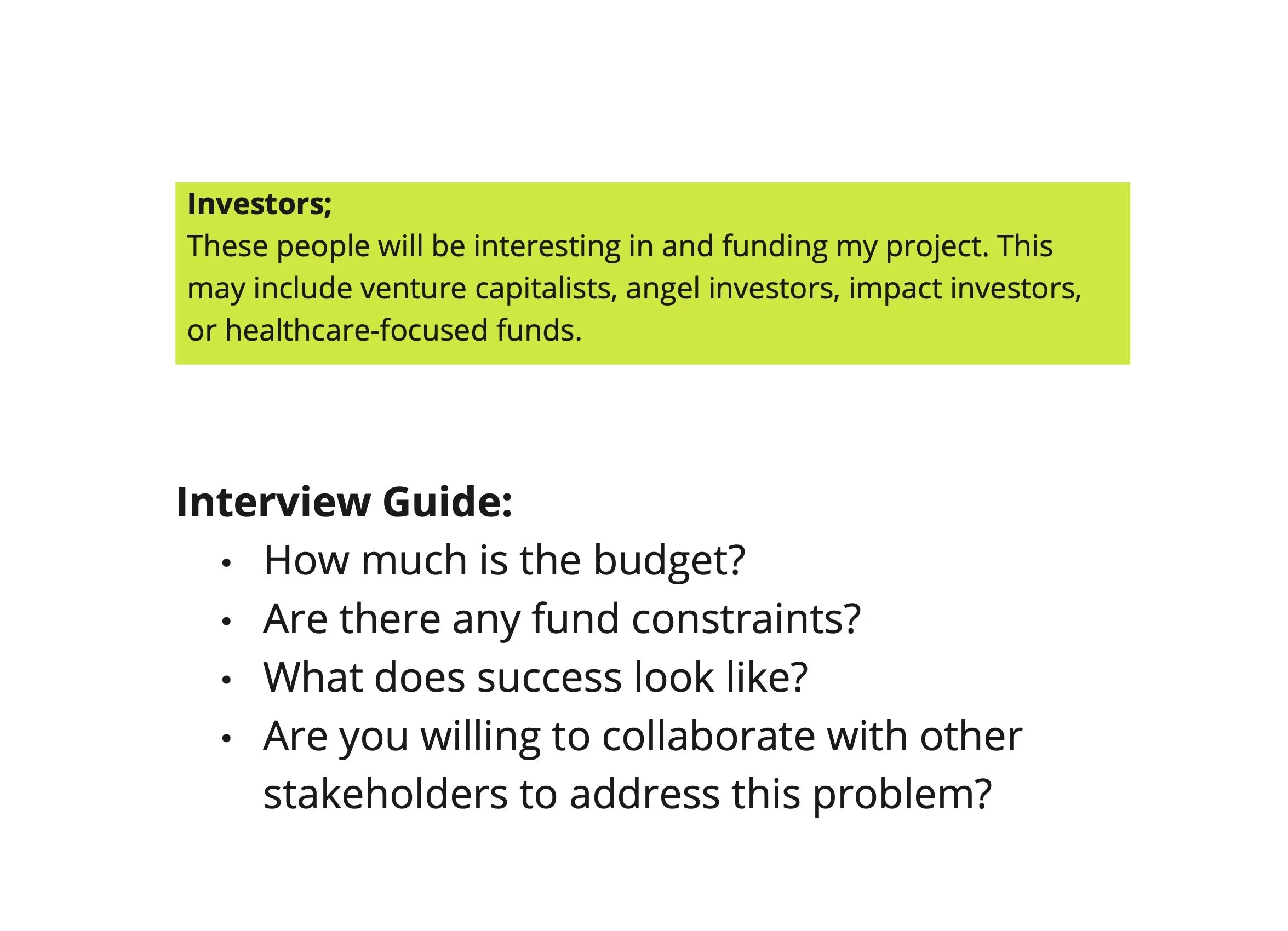Supervised by CCS - College for Creative Studies
The Climate Crisis and its impact on people with pre-existing mental health conditions.
About
This project examines the intricate relationship between the climate crisis and its impact on mental health, specifically focusing on the challenges faced by individuals with pre-existing mental health conditions during extreme heatwaves. The research aims to identify their unique needs and uncover gaps in support, providing insight into potential design solutions. However, the findings revealed challenges in gaining stakeholder buy-in for such a project.
Findings: Summary
Individuals with pre-existing mental health conditions often rely on medication for treatment, but during extreme heat events, these medications can affect the body's ability to handle heat, increasing susceptibility to heat-related issues. Consequently, alternative services or treatments are needed to reduce the risk of severe heat-related outcomes. During such events, individuals with mental health conditions may struggle with self-care due to heat's impact on cognition and mood, impairing decision-making and planning abilities, which can exacerbate existing mental health challenges. While some states and cities have initiated Heat Action Plans, they are at various stages of development and lack specific provisions for assisting vulnerable populations like those with pre-existing mental health issues. Current preventative services include personalized plans, knowledge of local medical facilities, support networks, and cooling strategies. Notably, national programs like SAMHSA and digital resources have emerged in recent years, signifying a growing focus on services for individuals with mental health conditions during extreme heat events.
Opportunities
Provide more accessible mental health services during extreme heat events: Exploring Telehealth options, mobile crisis units, digital therapy services.
Create guidelines or protocols for individuals with mental health conditions: to manage their medication effectively during extreme heat. Something as simple as working with healthcare providers to identify alternative medications or dosages that are less heat-sensitive.
Find creative ways to increase awareness: on impact, affects and services available for extreme heat like targeted public health messaging to encourage proactive measures.
Identifying User groups
Identifying Stakeholders
These stakeholders include professionals who can offer valuable insights through interviews, contributing both perspective and interest in the project’s success. Their feedback will help establish success metrics and shape the design process, informed by the specific questions and discussions raised during the stakeholder interviews.
Investors
Market Researcher
Public Health Officials/Experts
Given the sensitive nature of this project, particularly involving individuals with mental health conditions who may be reluctant to disclose personal information, confidentiality is crucial. Additionally, securing stakeholder buy-in may prove difficult due to the effort required to establish contact for interviews, especially considering that existing programs addressing similar issues are already underway (as previously mentioned in findings).
Learning Outcomes
To enhance clarity, a stronger connection between opportunity statements and recommendations is needed. The current recommendations feel overly solution-focused.
Incorporating more bullet points during data synthesis and analysis will help reduce the text-heavy nature of the research board





